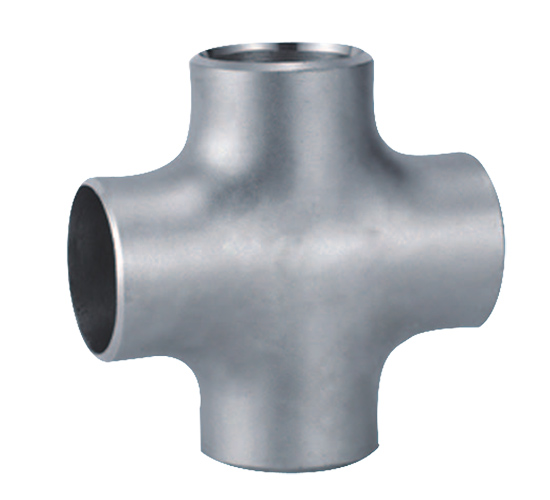-
Cangzhou Yulong Steel Co., Ltd.
-
Phone:
+86 13303177267 -
Email:
admin@ylsteelfittings.com
- English
- Arabic
- Italian
- Spanish
- Portuguese
- German
- kazakh
- Persian
- Greek
- French
- Russian
- Polish
- Thai
- Indonesian
- Vietnamese
- Zulu
- Korean
- Uzbek
- Hindi
- Serbian
- Malay
- Ukrainian
- Gujarati
- Haitian Creole
- hausa
- hawaiian
- Hebrew
- Miao
- Hungarian
- Icelandic
- igbo
- irish
- Japanese
- Javanese
- Kannada
- Khmer
- Rwandese
- Afrikaans
- Albanian
- Amharic
- Armenian
- Azerbaijani
- Basque
- Belarusian
- Bengali
- Bosnian
- Bulgarian
- Catalan
- Cebuano
- China
- China (Taiwan)
- Corsican
- Croatian
- Czech
- Danish
- Esperanto
- Estonian
- Finnish
- Frisian
- Galician
- Georgian
- Kurdish
- Kyrgyz
- Lao
- Latin
- Latvian
- Lithuanian
- Luxembourgish
- Macedonian
- Malgashi
- Malayalam
- Maltese
- Maori
- Marathi
- Mongolian
- Myanmar
- Nepali
- Norwegian
- Norwegian
- Occitan
- Pashto
- Dutch
- Punjabi
- Romanian
- Samoan
- Scottish Gaelic
- Sesotho
- Shona
- Sindhi
- Sinhala
- Slovak
- Slovenian
- Somali
- Sundanese
- Swahili
- Swedish
- Tagalog
- Tajik
- Tamil
- Tatar
- Telugu
- Turkish
- Turkmen
- Urdu
- Uighur
- Welsh
- Bantu
- Yiddish
- Yoruba

Oct . 31, 2024 20:22 Back to list
Various Types of Pipe Caps for Different Applications and Uses
Types of Pipe Caps An Overview
Pipe caps are essential components in various piping systems, serving multiple purposes such as preventing contamination, sealing ends, and maintaining system pressure. They come in different types, materials, and sizes, tailored to the unique requirements of industrial applications. Understanding the various types of pipe caps can help ensure the proper selection and effective implementation in piping setups.
1. Material Types
Pipe caps are commonly made from three primary materials metal, plastic, and rubber. Each material offers distinct advantages based on the application.
- Metal Caps Often crafted from materials such as steel, stainless steel, or aluminum, metal caps are known for their durability and high resistance to pressure and temperature extremes. They are widely used in oil and gas industries, chemical processing, and water treatment facilities due to their robustness.
- Plastic Caps Made from polypropylene, PVC, or polyethylene, plastic caps are lightweight, corrosion-resistant, and typically more cost-effective than metal alternatives. They are suitable for applications involving non-hazardous liquids and gases, making them popular in plumbing and irrigation systems.
- Rubber Caps These are generally used for temporary sealing purposes. They are flexible and provide a snug fit on various pipe types, making them useful in both industrial and household settings.
2
. Types of Pipe CapsPipe caps can be classified based on design and intended use
types of pipe caps

- Blind Caps These caps cover the end of a pipe to block off the flow, often used in maintenance or when a connection is not needed. They help maintain system pressure and prevent contaminants from entering the piping system.
- Threaded Caps Also known as screw-on caps, these feature male or female threads and are designed for a tight seal. They are commonly found in water and gas lines where a secure connection is necessary.
- Socket Caps These caps are designed to fit over the end of a pipe, allowing for easy installation and removal. Socket caps are often used in systems requiring routine maintenance and access.
- End Caps Used primarily for welding applications, end caps cover the pipe's end and provide a clean finish. They are typically used in manufacturing and fabrication processes.
3. Applications
The application of pipe caps extends across various industries. In the construction sector, they are crucial in plumbing systems, preventing leaks and ensuring the integrity of water and drainage systems. In oil and gas, pipe caps prevent leaks and provide a secure closure for transport and storage. Additionally, in food and beverage industries, they help maintain hygiene by protecting pipes from external contaminants.
Conclusion
In conclusion, the right type of pipe cap is essential for the efficiency and functionality of a piping system. By understanding the different types and materials available, industries can choose the most appropriate pipe caps for their specific needs, ensuring safety and operational reliability. Whether it’s for temporary sealing, maintenance, or creating a permanent closure, pipe caps play a vital role in various applications, making them indispensable in the piping industry.
Latest news
-
ANSI 150P SS304 SO FLANGE
NewsFeb.14,2025
-
ASTM A333GR6 STEEL PIPE
NewsJan.20,2025
-
ANSI B16.5 WELDING NECK FLANGE
NewsJan.15,2026
-
ANSI B16.5 SLIP-ON FLANGE
NewsApr.19,2024
-
SABS 1123 FLANGE
NewsJan.15,2025
-
DIN86044 PLATE FLANGE
NewsApr.19,2024
-
DIN2527 BLIND FLANGE
NewsApr.12,2024
-
JIS B2311 Butt-Welding Fittings LR/SR 45°/90° /180°Seamless/Weld
NewsApr.23,2024











